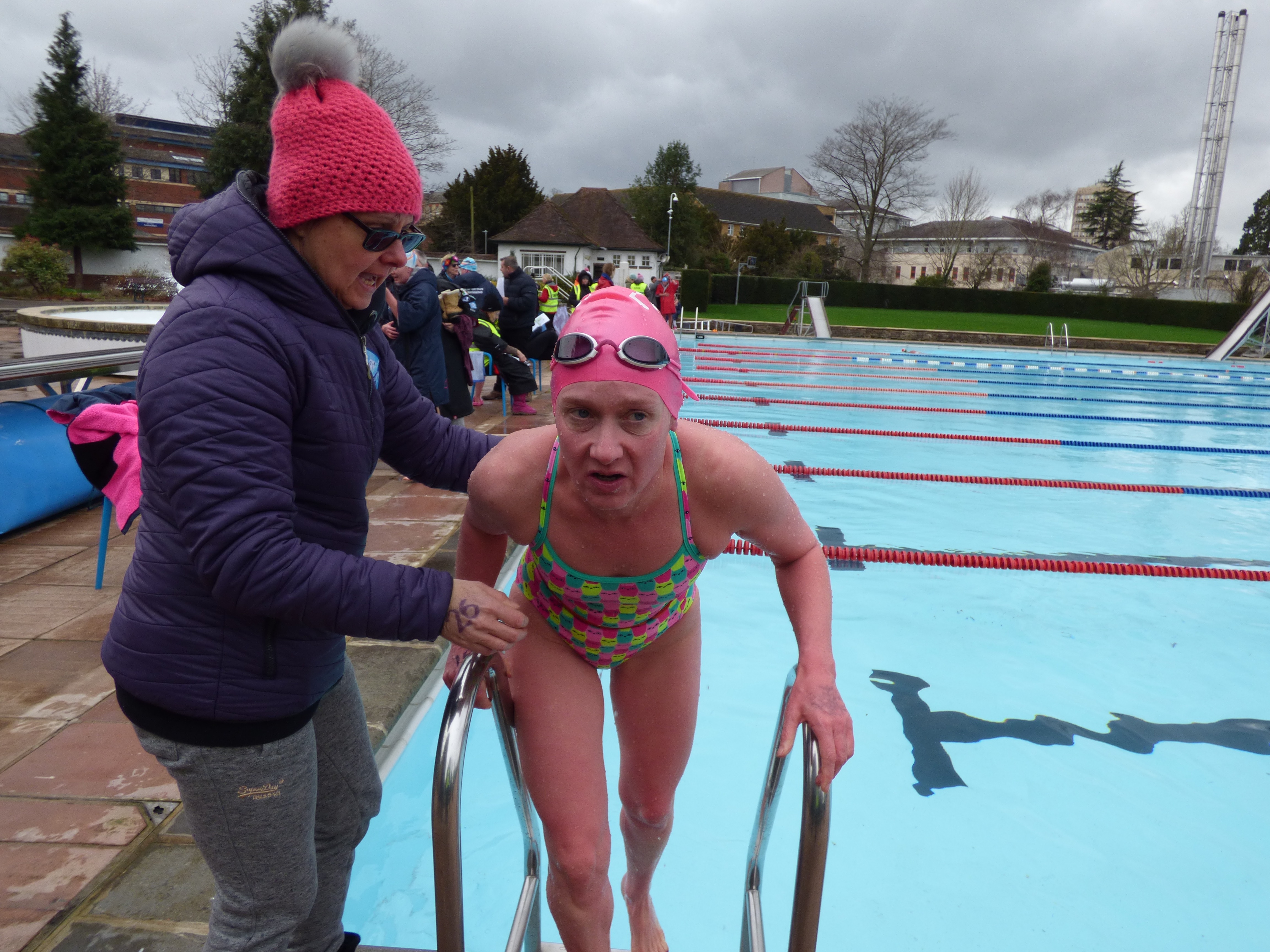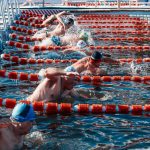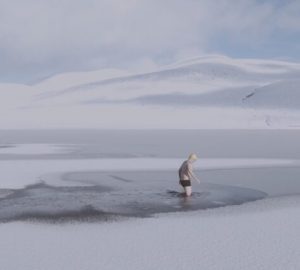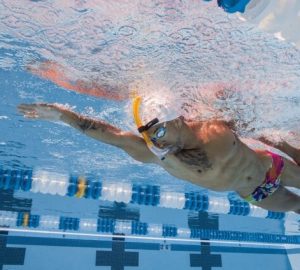IISA British Ice Swimming Championships 2020: a bit too warm, but a whole lot of fun!
Joanne Jones reflects on the IISA British Ice Swimming Championships 2020 which were held at Sandford Parks Lido in Cheltenham.
On 22 and 23 February, Sandford Parks Lido hosted the third competition in the world series, the IISAGB national championships.
At its heart, the weekend was a celebration. People came from lots of backgrounds, some from club swimming, a former English Channel world record holder, those who have slowly shirked more and more neoprene taking on personal challenges, and those for whom the ice has become a way of life.
The event was run brilliantly, a testament to the volunteers and the IISAGB board, many of whom swam in events throughout the weekend as well as donning hi-vis jackets and running the weekend when not in the water.
The water at the Cheltenham lido was 6.4C, too warm for official records
On the Saturday there were eight heats of eight swimmers each for the 1km swim. This is 20 lengths of a 50m pool with touch turns (not tumble turns) and starting from a push, not a dive, in much colder water than usual pool races.
One of the brilliant things about ice and open water swimming is that completing a swim slowly is recognised as a different skill to speed. The grit and determination required to be in cold water for a long period of time is as revered as the speed to be in and out in half as long.
The celebrations continued into the evening with awards for the day’s races. Caroline Saxton and James Leitch retained their titles (and beautiful glass trophies) for another year as the fastest GB swimmers and the overall 1km winners were Christof Wandsratch and Kyra Wijnker in 13:18 and 13:38 respectively.
Jackie Cobell, Kate Steels and Christof Wandsratch, as well as Ram Barkai’s Antarctica swim expeditions, were inducted into the Ice Swimming Hall of Fame (class of 2020), and they shared their thoughts on their ice swimming experiences and what the sport means to them.
The Sunday brought with it varied weather conditions, even warmer water, and even more races, with the 500m, 250m, 100m freestyle and 100m breaststroke all taking place before 2pm. Again, there were some phenomenal swims as well as some exceptional displays of determination and community support, which makes this sport fantastic for both the competitive and community minded.

photo credit Heather Massey
The exceptional swimmers are remarkable, but it’s the stories of the people who didn’t expect to find themselves in cold water in the middle of February that always strike a chord with me.
I was speaking to a lady on the poolside – and like so many wonderful encounters, I never caught her name – but what she said captures why wild, outdoor, and ice swimming is so remarkable and universal.
“If you’d have told me 10 years ago that at the age of 50 I was going to be doing sports competitions, and more-so a sports competition in the freezing cold in my swimsuit, I’d have laughed. I’m still laughing, but from the fun I’m having rather than the ridiculousness of the idea!”
In her ISHOF acceptance speech, Jackie Cobell said: “Ten years ago, to swim in ice was considered superhuman. But we’re all superhuman if you believe in yourself and put your mind to it you can do anything you like.”
For me, my first experience of an ice swimming competition at the IISAGB champs in Cheltenham, has been a celebration of superhuman achievements.
photo credit: Heather Massey






